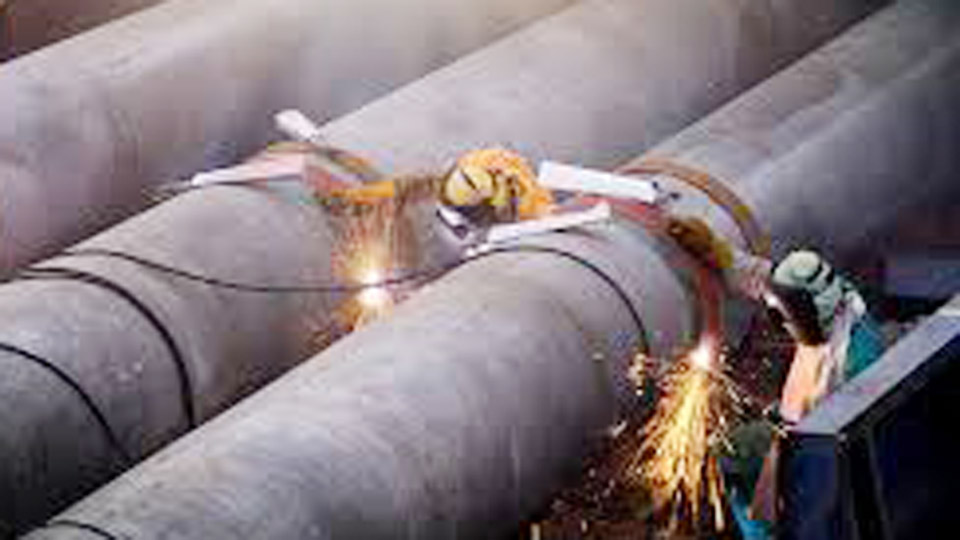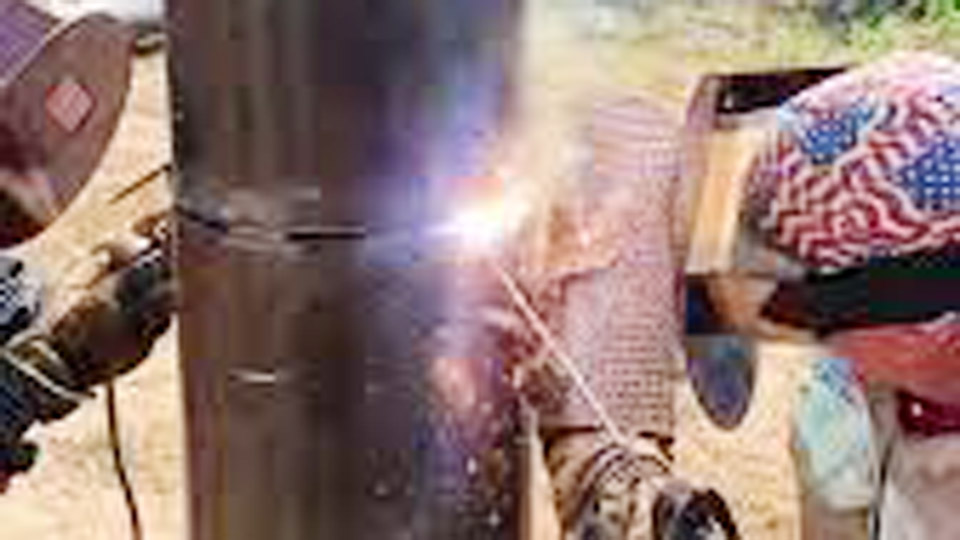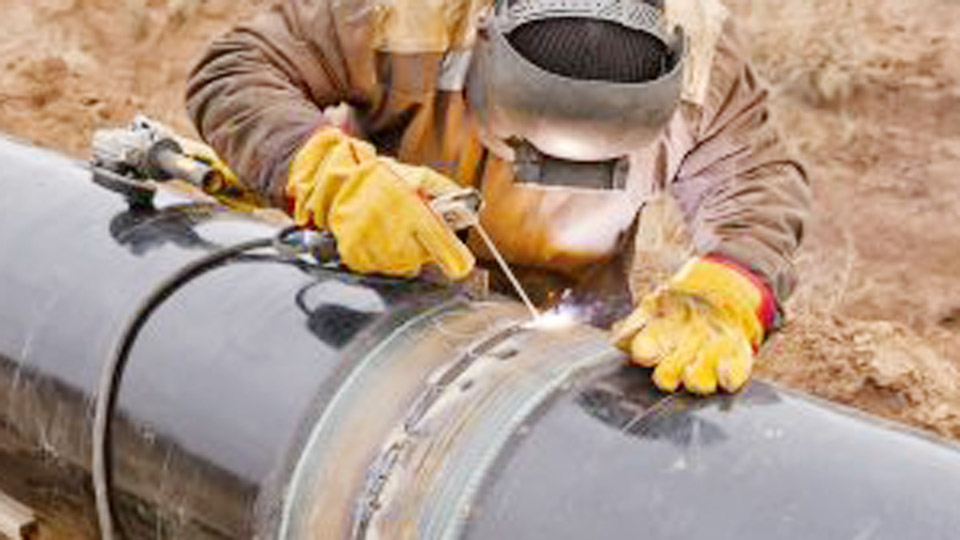When people ask me about welding, one of the most common questions is: “How much can I actually make per hour as a welder?” It’s a fair question, especially if you’re thinking about stepping into this career or looking to grow in it.

Image by wileymetal
I’ve welded on farms, in shops, on big industrial projects—you name it. One thing I’ve learned is that the hourly wage for a welder can vary a lot. And not just based on skill, but also by location, industry, certifications, and the type of welding you’re doing.
Let me walk you through what you really need to know about welder hourly pay in the United States. This guide is for folks like you—If you’re just curious or seriously thinking about welding as a career.
What Is the Average Hourly Wage for Welders in the USA?
Across the U.S., welders earn anywhere between $16 to $35 per hour depending on various factors. But if we talk averages, most welders make around $22 to $27 per hour.
That’s just the national average. Some earn more. Some earn less. So what changes that range? Let’s dig in.
Factors That Affect How Much a Welder Makes Per Hour
Several key things can push your hourly wage up—or keep it on the lower side. Here’s what I’ve experienced and seen firsthand:
Experience Level
When you’re new, you’re likely starting out on the lower end of the pay scale. After a few years of consistent work and learning on the job, your value increases.
- Entry-Level (0–1 year): $16–$20/hour
- Mid-Level (2–5 years): $20–$28/hour
- Experienced (5+ years): $28–$35/hour or more
Welding is one of those trades where hands-on time really matters. The more you’ve seen, the more you’re worth.
Type of Welding
There are different welding methods, and each pays differently. Here’s a quick breakdown:
| Welding Type | Typical Hourly Rate |
|---|---|
| MIG Welding | $18–$25 |
| TIG Welding | $20–$30 |
| Stick Welding (SMAW) | $18–$28 |
| Pipe Welding | $30–$45 |
| Underwater Welding | $50–$100+ |
| Structural Welding | $20–$32 |
If you specialize in a niche like underwater welding or high-pressure pipe welding, you can demand premium rates.
Location
Where you live and work in the U.S. has a huge impact. Welders in states with high demand or in industrial areas tend to earn more. Let’s take a closer look at some numbers.
Welder Hourly Pay by State
Here’s a table showing approximate hourly wages for welders by state. These are based on current trends and data I’ve observed working across the country and networking with other welders.
| State | Avg Hourly Wage |
|---|---|
| Alaska | $33.50 |
| North Dakota | $31.20 |
| California | $29.00 |
| Texas | $25.50 |
| Florida | $22.00 |
| New York | $26.50 |
| Illinois | $24.00 |
| Ohio | $23.00 |
| Georgia | $22.50 |
| Arizona | $23.50 |
| Colorado | $25.00 |
| Washington | $27.80 |
| Pennsylvania | $24.30 |
| Michigan | $23.70 |
Keep in mind, places with higher living costs usually offer higher pay. But they also come with higher expenses, so the real benefit depends on your lifestyle and goals.
Industry-Wise Pay Differences
Welders work in a wide range of industries. And some industries pay way more than others.
Construction
Welders in construction earn around $22–$30/hour. If you’re in a union shop or doing large infrastructure projects, that rate can climb higher.
Oil & Gas
If you’re willing to travel and do hard work in rough conditions, welding in oil and gas can pay $30–$45/hour, sometimes more with per diem.
Manufacturing
This one varies a lot depending on the company, but generally it sits around $18–$25/hour.
Shipbuilding
This industry pays welders roughly $25–$32/hour. Some shipyards pay top dollar for certified welders with military contracts.
Aerospace
This is a high-skill area. Expect $30–$40/hour with proper certification and experience.
Certifications That Can Increase Your Hourly Wage
If you’re serious about earning more, certifications are key. I’ve personally seen guys double their rates with the right credentials. Here are a few to consider:
- AWS Certified Welder (American Welding Society)
- Certified Welding Inspector (CWI)
- ASME Certification
- NCCER Certification
- OSHA Safety Certifications
A certified welder usually gets top priority for high-paying jobs. Employers know you’ve met the standards.
Value of Overtime and Bonuses
Welders who work in industrial or contract jobs often rack up overtime. I’ve had weeks where I put in 60+ hours, and the overtime pay made a big difference.
Typical overtime is 1.5x your hourly wage, and double-time pay is common on holidays.
Let’s say you earn $25/hour. Your overtime rate is $37.50/hour. Over 10 hours of overtime, that’s an extra $375 per week, or nearly $1500 per month.
Some employers also offer bonuses for completing jobs early, working remote locations, or staying accident-free.
Union vs Non-Union Welding Jobs
Union welders generally earn more per hour. They also get stronger benefits like:
- Retirement plans
- Health insurance
- Paid vacation
- Guaranteed raises
Non-union welders have more flexibility, but wages can vary wildly.
Freelance and Contract Welding
I’ve done freelance jobs and I can tell you—there’s real earning potential here. Freelance welders can charge anywhere from $40 to $100 per hour, depending on skills, tools, and location.
You’ll need to invest in equipment, insurance, and travel costs. But the freedom and income potential are worth it for many folks.
Tips to Increase Your Welding Hourly Rate
Want to earn more? Here are a few tips that worked for me and my crew:
- Never stop learning. Keep building skills. Learn TIG if you only know MIG. Learn pipe welding.
- Get certified. Employers love seeing paperwork that proves your abilities.
- Network. Good-paying jobs often come through referrals.
- Take tough jobs. Harsh environments usually mean higher pay.
- Be reliable. Show up on time. Stay safe. Be the guy others can count on.
Real-Life Example of Hourly Wage Growth
I started at a small fabrication shop making $18/hour. Within two years, I moved into TIG welding and started earning $24/hour.
After gaining certifications and jumping into pipeline work, I reached $35/hour with overtime taking it even higher. Some months I made $8000+, thanks to extra hours and bonuses.
Welding isn’t just a job—it can be a career that grows with you.
Summary of Hourly Welding Pay
| Factor | Pay Range |
|---|---|
| Entry-Level Welder | $16–$20/hour |
| Experienced Welder | $28–$35/hour |
| Underwater Welder | $50–$100/hour |
| Pipe Welder | $30–$45/hour |
| Union Job | $28–$40/hour |
| Freelance Welder | $40–$100/hour |
| State Average | $22–$30/hour |
Conclusion
So, how much does a welder make an hour? As you can see, it depends. But the good news is, if you’re dedicated, hardworking, and willing to level up your skills, welding can be a solid and rewarding career.
It’s one of those trades where your hands and mind work together. And you’re not stuck at a desk all day. You build. You fix. You create things that matter.
From the shop floor to pipelines in Alaska, welders are in demand. And that demand usually means better pay. If you’re thinking about welding or already working in the field, there’s always room to grow—and earn more.
FAQs
What is the highest-paid type of welding?
Underwater welding and pipe welding are typically the highest-paid, especially with experience and certifications.
Is welding a good career choice in the USA?
Yes, welding is in high demand across many industries and can be a stable, well-paying career.
Can I make six figures as a welder?
Yes, especially in oil & gas, pipelines, or freelance/contract welding with overtime and bonuses.
Does welding pay more in union jobs?
Usually, yes. Union jobs offer higher hourly rates, better benefits, and more job security.
How much can a beginner welder expect to make per hour?
A beginner welder typically earns between $16–$20 per hour depending on the location and industry.
Are welding jobs safe?
With proper training, PPE, and safety awareness, welding can be safe. Always follow safety procedures.







